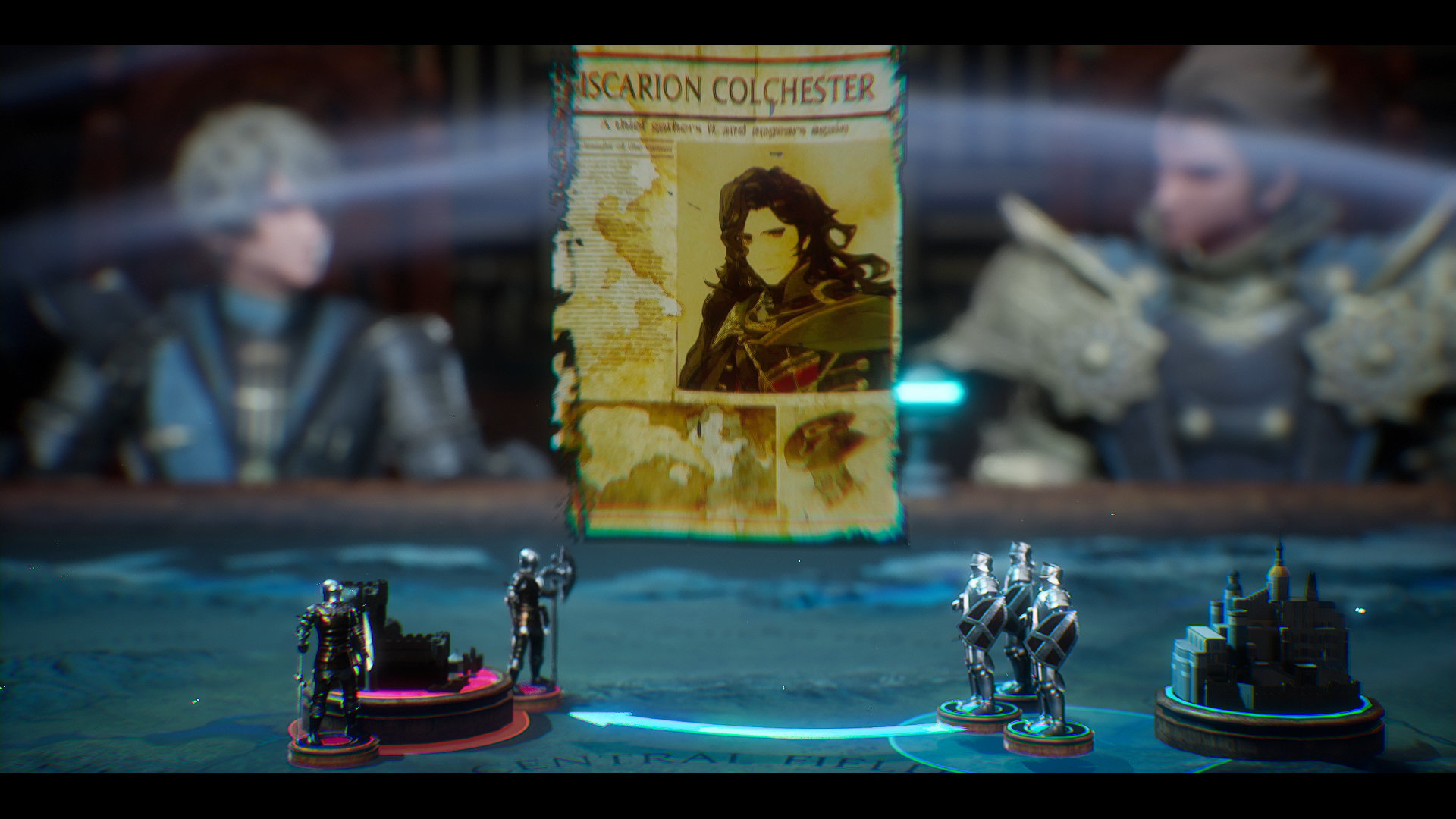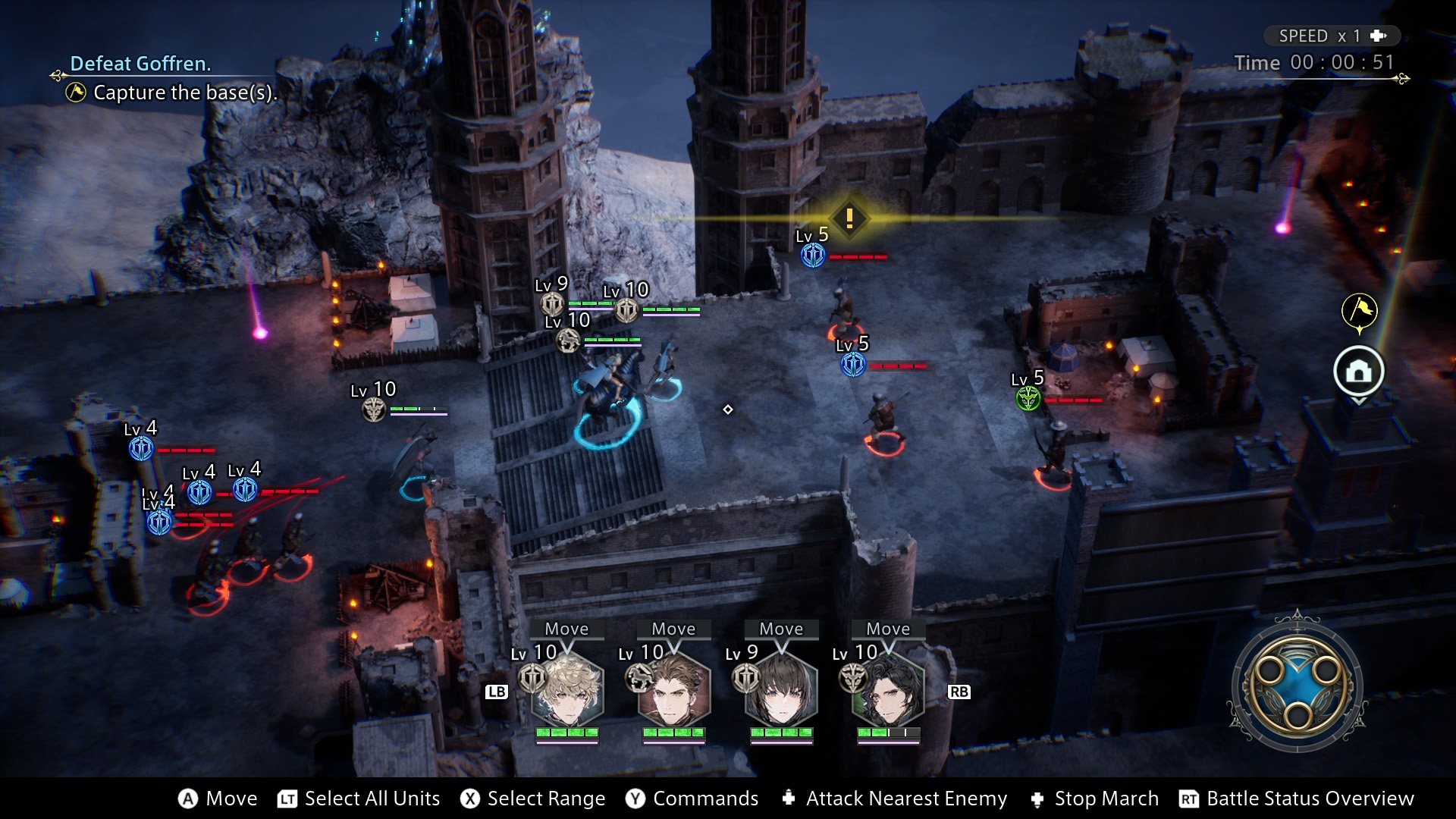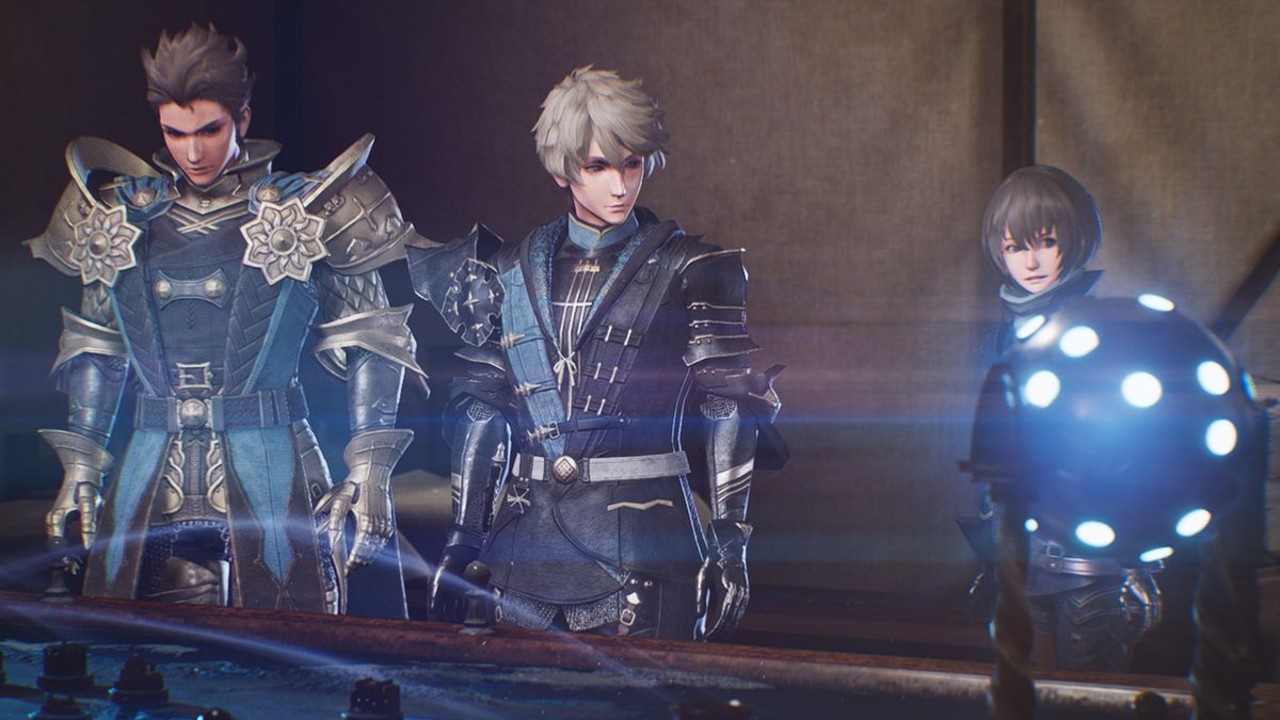The DioField Chronicle is a JRPG that punches above its weight, managing to overcome a clearly constrained budget and presentation to create a wildly unique experience that tackles fascinating narrative themes. There are some notable issues that plague the experience, but The DioField Chronicle has a vision that, for the most part, it manages to fulfill.
In all regards, DioField isn’t your typical JRPG in terms of how the narrative and combat play out. The game takes place on the titular DioField Island, where the ancient Kingdom of Alletain rules with the help of the Granvelle Church. You follow a small group of mercenaries named The Blue Foxes, who go from obscurity to playing a central role in shaping the future of DioField.
DioField‘s story is pretty heavy on exposition, with much of the narrative told through narrated scenes on the world map or lengthy dialogue sections between characters. The slow narrative presentation, coupled with sluggish pacing and writing, is where many players will likely end up hitting a wall, even if the eventual result has plenty of intrigue and fascinating characters.
Perhaps what’s most compelling, however, are the themes of clashing ideals the game toys with. This is a kingdom steeped in tradition and reverence for the establishment, but there’s a rising movement for democracy beginning. Your characters are on the side of the monarchy, and DioField superbly juxtaposes the flaws of both governmental systems. It’s rare to see a game willing to question ideas in such a dynamic way, and it works to the overall narrative’s strength.
However, combat is where the game shines, using a hybrid of typical JRPG systems and real-time strategy. Each battle takes place on a self-contained map, and you can take up to four units into battle, with each unit accompanied by an adjutant. Characters are split into four different unit types — Soldiers, Cavaliers, Magickers, and Sharpshooters — that all function differently. Within these classes are sub-classes, providing even more variation.
You move your units around the map in real time but can pause the action to select skills, use items, or select new positions. Skills are dictated by a resource called EP, while you also have powerful Magulimic Orbs that can unleash powerful creature summons.
Right off the bat, DioField’s combat feels wholly unique, and it’s a system that encourages both strategy and experimentation. There’s a ton of fun to be had in trying out different skills and equipment sets, then seeing how contrasting characters work together. Things shine when maps provide you with unique challenges, like ranged towers that fire at you, or alternate pathways by which to approach enemies.
Between battles, you’ll have a chance to run around the Blue Fox’s base and upgrade your army in the process. There are a variety of options for expanding your army, from researching new weapons to upgrading various skills for your units, bestowing them with new power or alternate effects.
While you can explore the base and talk to characters, it’s mostly a static area that never changes across the experience. It’s one aspect of DioField that feels as if it could have been something far grander, especially when compared to other strategy RPGs that let you explore dynamic locations, like Garreg Mach Monastery in Fire Emblem: Three Houses.
DioField also puts a big emphasis on side quests, and there are a few instances where you’re encouraged to grind to meet a level requirement for the next main story quest. It’s in these moments that DioField’s shtick starts to wear thin. While I love the strategy and variety involved in the core combat experience, the game’s map design falters the more sidequests I played. The main missions do a great job of mixing things up, but so many sidequests simply boil down to taking on a bunch of enemies with a real lack of more complex objectives.
It also feels as if there could be more variation in the presentation in general. While the game’s hand-drawn portraits and art are absolutely gorgeous, the character models feel wooden and cold by comparison. At the same time, too much of the story is delivered through static conversations rather than the more active and flashy cutscnes. This same idea also applies to the fantastic score. What’s there is great, but there just aren’t enough tracks; hearing the exact same music in battle after battle after battle after battle gets old.
The DioField Chronicle Review — The Bottom Line
Pros
- Fantastic combat that feels strategic and unique.
- Complex and surprisingly ambitious narrative themes.
- A ton of customization options for your army that encourages experimentation.
Cons
- Side content doesn’t have enough variety.
- Slow-burn story that relies on exposition dumps.
- Lackluster presentation that often falls short.
The DioField Chronicle has some fantastic ideas, even if some of them feel a bit underbaked. This could be the foundation of something ambitious for Square Enix, and if another game could build upon the combat system and narrative style found here, it could really turn into something special.
DioField‘s story is a tremendous slow burn that might turn people off, but the combat has enough depth and strategy to make up for it. The DioField Chronicle is easily one of the most unique games of the year and a breath of fresh air in the JRPG genre, even for its problems.
[Note: Square Enix provided the copy of The DioField Chronicle used for this review.]










Published: Oct 5, 2022 10:57 pm